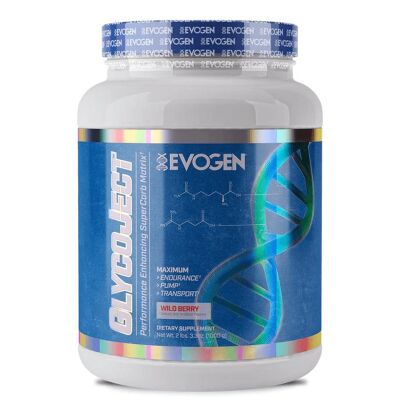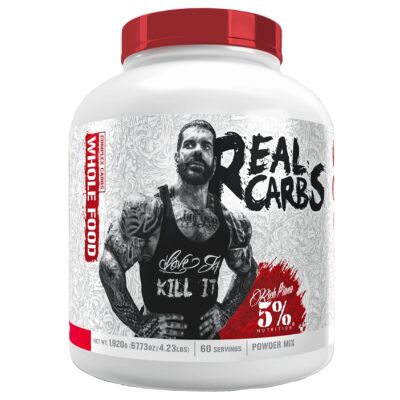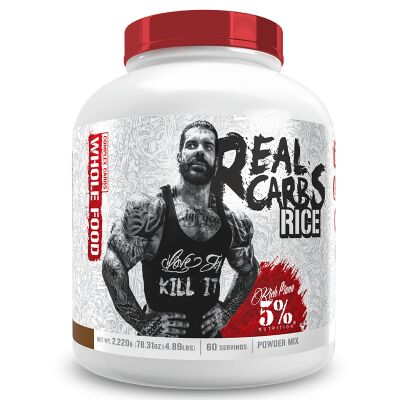Carbohydrates
Buy carbohydrates like dextrose, maltodextrin and waxy maize starch from American Supps!
Carbohydrates are just like proteins and fats to the so-called macronutrients. Unfortunately, carbohydrates often enjoy a bad reputation, especially as a fattening. Carbohydrates play an extremely important role in the human organism. Carbohydrates are an important source of energy for the body. But the most interesting feature is the function of an infiltrator for nutrients. That's how carbs work like a door opener. American Supps offers a huge selection of nutritional supplements, supplements and workout accessories for bodybuilding, strength training and fitness. Who wants to build body mass and mass needs sufficient carbohydrates such as dextrose, maltodextrin or waxy maize starch. On our extra page Dextrose buy you will find a separate selection of Dextrose.
What are carbohydrates?
From a chemical point of view, carbohydrates consist of carbon, hydrogen and oxygen. A ring of carbon atoms forms the ring of carbohydrates. When carbohydrates are absorbed through food, they are broken down into the individual building blocks by various chemical processes in the body. At the end of your digestive process, the individual sugar molecules always remain. The carbohydrates differ depending on how many carbon rings the carbohydrates are put together.
Carbohydrates that are not monosaccharides are also referred to as multiple sugars. Monosaccharides, disaccharides, oligosaccharides are water-soluble and have a sweet taste. In the narrower sense, they are also referred to as sugar. Polysaccharides are as good as not water-soluble and neutral in taste. Because of this, foods made from more complex carbohydrates do not taste good either.
Monosaccharides: glucose (dextrose), fructose
Disaccharides: granulated sugar, milk sugar, malt sugar
Oligosaccharides: raffinose
Polysaccharides: starch, cellulose, chitin
Duties of carbohydrates
Carbohydrates are an important source of energy for just about all body cells, especially brain, red blood cells and renal medulla depend on the glucose (glucose) as an energy source.
Carbohydrates provide an upright water and electrolyte balance in the body.
Complex carbohydrates have important protective functions and are part of the bone and connective tissue substance.
Complex carbohydrates are involved in various defense reactions in the body.
Carbohydrates digestion
The digestion of carbohydrates already begins in the mouth when chewing the ingested food. The enzyme amylase, which is contained in the saliva, already cuts some of the carbohydrates in the body into small sugar molecules. The better the food is chewed, the less digestive work the remaining digestive organs have to do. The larger carbohydrate chains are split until the smallest building blocks (monosaccharides or even glucose) are left over. The small sugar molecules are absorbed into the blood via the intestinal wall. As soon as this happens, the blood sugar level rises and sends signals to the brain. Then the hormone insulin is released, which transports the nutrients into the cells. Together with the amino acids and fats, they serve as nutrients to the cells and promote muscle growth.
Carbohydrates as an energy source
Once individual sugar molecules have arrived in the cells, it continues with the so-called citrate cycle. The citrate cycle is a metabolic process in which glucose is transformed into energy in the form of ATP (adenosine triphosphate), carbon dioxide and water. ATP is needed for every muscle movement. If too much sugar in the form of carbohydrates is absorbed through the food, it will fill the glycogen stores (energy stores). Depending on how high the need is, the glycogen is converted back into glucose and thus supplies the body with energy (gluconeogenesis). This is especially important in the case of intensive stress, as occurs in a hard training session of great importance. If the body has too little carbohydrates in the blood, it can always resort to these glycogen reserves.
Do carbohydrates make you fat?
The moment the cells are opened by insulin, fat burning is blocked. In this situation the body builds up and does not build up. For this reason, the hormone insulin is also called masthormone. The function of insulin is interesting for anyone who needs to build muscle or constantly provide the body with energy like endurance athletes.




